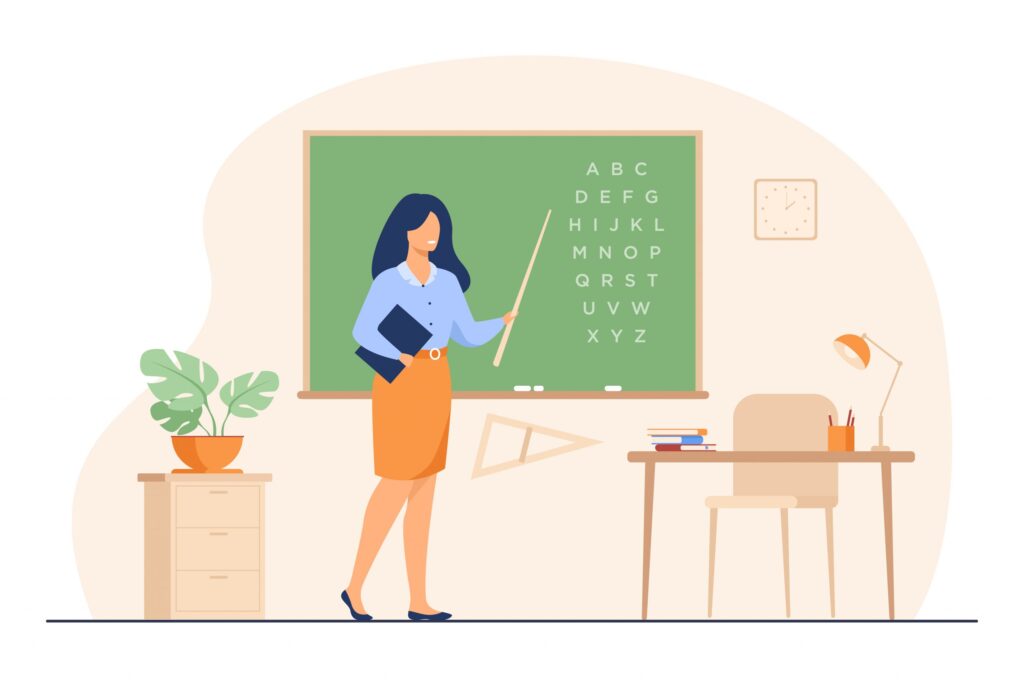
Being an SEN teacher is incredibly rewarding and if you are considering a career working in SEN schools, it’s good to get a sense of what the job entails. We recently caught up with an experienced SEN teacher to ask them why they love SEN teaching, and to answer any questions you might have about the job.
I am an SEN Teacher
I wanted to share information about the different aspects of my role, so people that are considering SEN teaching jobs can better understand exactly what it is like. Here’s why I love being a special education teacher.
1. What is Your Job Role?

Being an SEN teacher has the same responsibilities as any other teacher, but with additional duties on top. I am responsible for teaching and learning in the classroom, and making sure that I take classes in a way that is accessible to students that have difficulty with more complex concepts and ideas. As an SEN teacher, I deliver personalised programmes based on the specific challenges that students face to ensure the highest level of progress for all students. Monitoring progress is a big part of the job because this allows me to make adjustments to my lessons based on the outcomes.
Allocating and managing resources is crucial too. Effective and efficient deployment of staff and additional learning resources creates a better learning environment for my students and maximises the help that we can give them. A large part of this is leading the learning support assistants in the class team.
Outside of the classroom, I work closely with parents to improve learning and maintain student safeguarding and well-being at all times. I also attend and participate in regular meetings and planned training sessions to improve my skills and make sure that I am offering the right support to my students.
2. What Do You Most Enjoy About Being an SEN Teacher?
Without doubt, the most rewarding thing about being an SEN teacher is having the opportunity to learn from my students and be inspired by them. Teaching children with special educational needs is a challenging job, but it’s all worth it when you see a student work so hard at something and overcome obstacles to make progress. Seeing the hours of effort and determination they put in is so inspiring and rewarding.
The job also gives you the chance to learn new skills. I have done a lot of work with ASD (autism spectrum disorder) students, many of whom have communication challenges and some that are non-verbal. I developed my own skills by learning communication systems such as PECS (Picture Exchange Communication System), basic BSL (British Sign Language), clicker and communicating print widget. By using these tools to create PECS folders, and visual timetables, and set suitable routines, I can better communicate with and support these students.
3. What Kind of Disabilities Do You Specialise in Working With?
SEN teachers work with any children and young adults that find it more difficult to learn than others. More specifically, I specialise in teaching children with autism and mild or moderate learning difficulties, specific learning difficulties like Dyslexia, physical disabilities, emotional or behavioural problems, and visual or hearing impairments.
4. What Made You Want to Be an SEN Teacher?
The chance to make a real difference in my students’ lives. In an SEN setting, the class sizes are smaller and I may give one-on-one lessons. This allows me to really get to know each child, build personal relationships with them, and understand their needs on a deeper level. Every child is unique and amazing in their own way, and discovering their individual needs, strengths, and challenges is all part of the magic of SEN teaching.
5. What Pathway Did You Take To Becoming an SEN Teacher?

I completed my initial teacher training course in 2007 and since then, I have gained tremendous experience in teaching. I am familiar with the KS1, KS2, KS3 and KS4 National Curriculum, which I use to build personalised, high-standard lessons for each of my students. This allows me to ensure that all of my ASD students achieve their highest levels of progress across the board.
6. What Makes a Good SEN Teacher/Teaching Assistant?
Passion, enthusiasm, and patience are all key traits that any good SEN teacher needs to have. Working with students with special educational needs takes time and hard work, but the reward at the end of it is much greater because you can make a real difference in your students’ lives. If you are not willing to take the time to really understand your students, you will not be able to help them progress.
SEN teachers also need to spend time researching and creating group and individual learning plans to prepare lessons across the curriculum. Working closely with parents is crucial as it allows you to understand the child better and guide them in their learning journey.
7. What Has Being an SEN Teacher/Teaching Assistant Taught You?
Compassion and patience are the two biggest things I have learned from being an SEN teacher. It is my job to support the children who need it most and ensure all children have access to the curriculum in a safe, supportive, and successful learning environment. Beyond this, I have learned many practical skills that allow me to engage with students and support them in whatever way they need.
8. What is a Day in the Life of an SEN Teacher/Teaching Assistant Like?
This is a difficult one to answer because every day is completely different, and that is one of the best things about the job. Your students will never fail to surprise you and you are always presented with new challenges and new accomplishments.
9. How Do You Teach SEN Students?

The first step is to identify and set clear learning objectives for students. I then plan and deliver effective differentiated lessons that get students to interact through visual, touch, sound and lines of questioning whilst building on new skills. I do this through the various skills I have developed using communication software such as In print, clicker 7/8 to create visual and auditory resources. I also like to give engaging presentations that get the students moving around in a carousel, using all of the practical learning resources I have at my disposal. When necessary, I also created personalised lesson plans for individual students.
Having clear expectations is important for motivating and inspiring students. Maintaining a positive attitude and setting clear boundaries in the classroom creates an environment where all students feel confident that they can reach their full potential. To this end, every lesson starts with ground rules and clear objectives for the lesson.
Monitoring progress is especially important in an SEN learning environment and I do this in a number of ways. Formative assessments include observations, question and answer sessions about the topic, listening to the students, marking books, and offering constructive feedback. Summative assessments track the students’ progress through the school accreditation system. I record and monitor students’ work and targets set (EHCP and solar) on Earwig and class folders.
Giving praise is vital in SEN settings too. My students work incredibly hard to progress and they need reassurance to boost their confidence, especially when they find something particularly challenging. Celebrating small goals and giving encouragement to all students on a daily basis is a big part of SEN teaching.
During our term meetings on work scrutiny and pupils’ progress review my leaders have been always pleased with the progress made by my students.
If you think that SEN teaching is the right path for you, Active SEN is here to help. We are a recruitment specialist dedicated to supporting you in your search for SEN teaching jobs. Get in touch and send us a CV and we can get you started on your new career journey.



